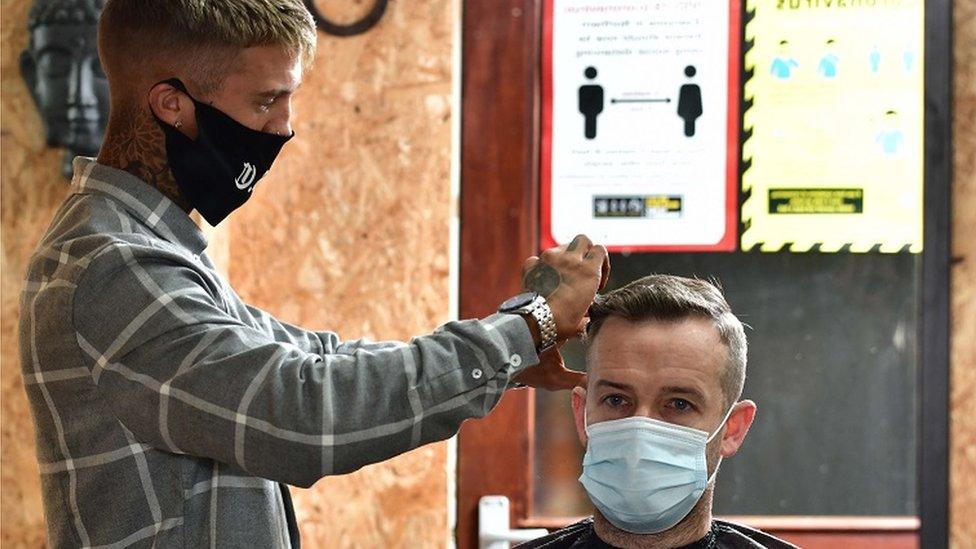Coronavirus: Stormont in deadlock over NI Covid restrictions
- Published
- comments

Pubs and restaurants were among businesses forced to close in Northern Ireland on 16 October
The Stormont executive remains deadlocked over what to do when the coronavirus restrictions in Northern Ireland end, in just over a day's time.
Ministers met on Wednesday night to try to resolve differences, but the meeting was adjourned shortly before 20:30 GMT without any announcement.
The regulations saw much of NI's economy placed under tight measures on 16 October.
Ministers will meet on Thursday morning, hours before the laws expire.
The Department of Health reported eight further coronavirus-related deaths on Wednesday, with 791 more people testing positive for the virus.
Earlier, a proposal from the health minister to extend all measures for one more week was blocked by the DUP.
The DUP supports a partial reopening of hospitality and close contact services from Friday.
It put forward a separate proposal suggesting this, but it was also voted down at the executive.
The Alliance leader, Naomi Long, has suggested a compromise proposal which would have kept the restrictions in place for one more week and this will be discussed by ministers on Thursday.
Earlier on Wednesday, Health Minister Robin Swann warned his ministerial colleagues that doing nothing "needs to be avoided" at all costs, and that some mitigations must be retained.
But the proposal fell after the DUP triggered a cross-community vote, effectively giving them a veto over the plan.
This can be deployed by any three ministers to require cross-community support on a particular matter, effectively giving a party with enough ministers in the power-sharing executive a veto.
Mr Swann's original proposal calling for a two-week extension was blocked by the DUP on Tuesday.

Wait for clarity goes on as Stormont tempers flare

Late-night talks resulting in stalemate at Stormont aren't exactly a rare occurrence.
If past experience is anything to go by, usually the longer discussions go on, the more time there is for opposing positions to become entrenched.
History seems to be repeating itself except unlike with previous deadlocks, this time ministers are grappling with the ongoing challenge of a global pandemic.
Both lives and livelihoods are immediately on the line.
Throughout the crisis, the executive has consisted of five political parties in the power-sharing coalition, where reaching consensus has required a delicate balance of competing party interests and conflicting policy decisions.

Sinn Féin, the SDLP and Alliance had previously said they would support a two-week extension of all restrictions.
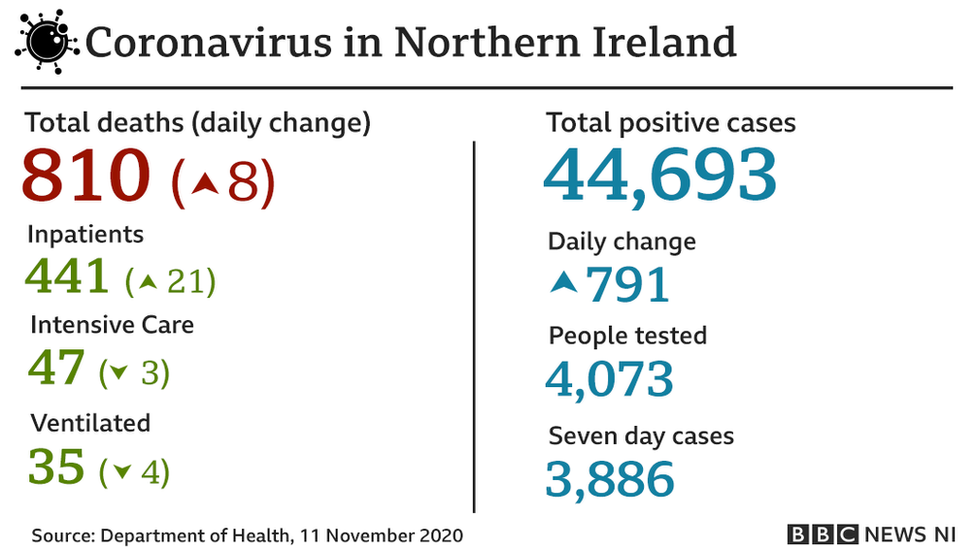
Mr Weir claimed Sinn Féin had changed its stance over relaxing restrictions and claimed inter-party agreement could have been reached earlier.
"I think people want certainty and I hope there can be a sensible compromise that can be reached," he added.
"It's important to stress that poverty can kill as well as Covid-19."
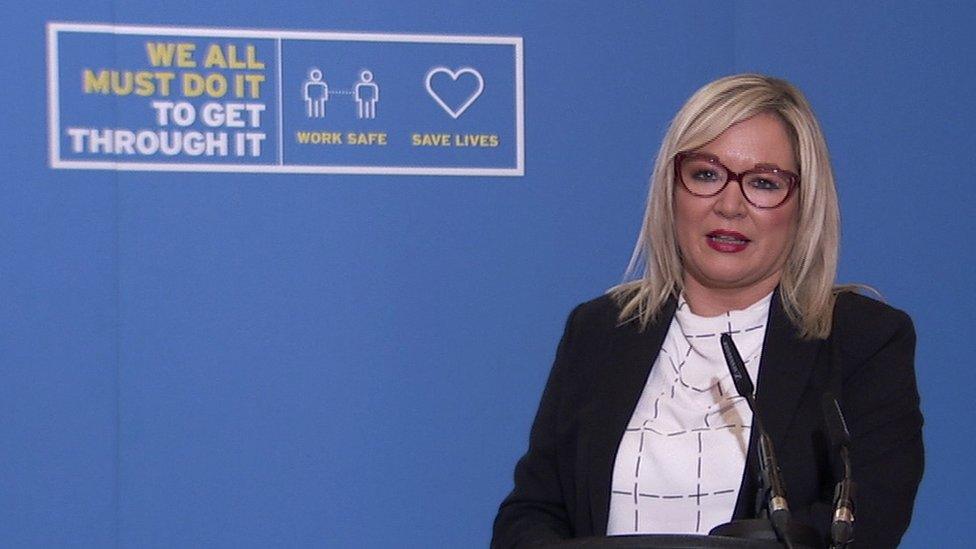
Michelle O'Neill says her party will be guided by public health advice
On Sunday, Ms O'Neill had suggested a partial and graduated reopening of some sectors was being considered by ministers.
In a statement on Wednesday, Ms O'Neill said: "Last night, Sinn Féin, the UUP, the SDLP and the Alliance Party voted in favour of the health minister's proposals to extend restrictions. The DUP blocked those proposals."
First Minister Arlene Foster told the BBC's Good Morning Ulster programme that any decision on the restrictions must be balanced and protect both hospitals and livelihoods.
Northern Ireland was facing a "mental health tsunami" if the economy was not considered, as well as health advice, she said.
"There will be excess deaths if we continue with the restrictions or if we take no decisions at all," the DUP leader said.
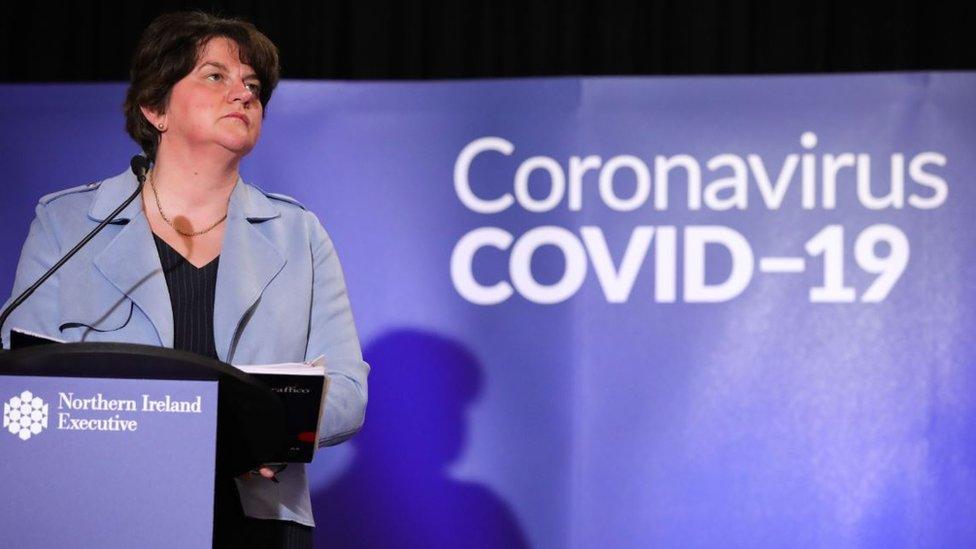
Arlene Foster said that she would have liked a decision much sooner "but we are in a five-party coalition and that brings challenges with it"
"Poverty has its own health outcomes... we are facing a mental health tsunami in relation to the pressure that we are putting on families as they come up to Christmas."
What is the latest advice from health officials?
BBC News NI has seen the latest advice from Health Minister Robin Swann, Chief Medical Officer Dr Michael McBride and Chief Scientific Adviser Prof Ian Young, issued to ministers on Wednesday.
It is understood Mr Swann stated that a "do nothing" approach, allowing the regulations to expire, is the worst possible scenario and should be avoided at all costs.
Modelling data from health officials to the executive says that reopening some sectors, or allowing the regulations to expire, mean it is "more likely than not" that further interventions may be required before Christmas.
How badly have businesses been hit?
The £400m figure presented by Mrs Dodds comes from a study by Stormont's Department for the Economy which looks at lost output, external.
It includes direct and indirect losses along with the costs of a potential delay to economic recovery, and comes with a significant margin of error.
The department has also produced a second estimate using an economic model built by the Fraser of Allander Institute, which estimates the lost output to be about £430m.
'Left in limbo'
Restaurateur Martin Murphy is not hopeful that his businesses will open this weekend.
He said he felt "left in limbo".
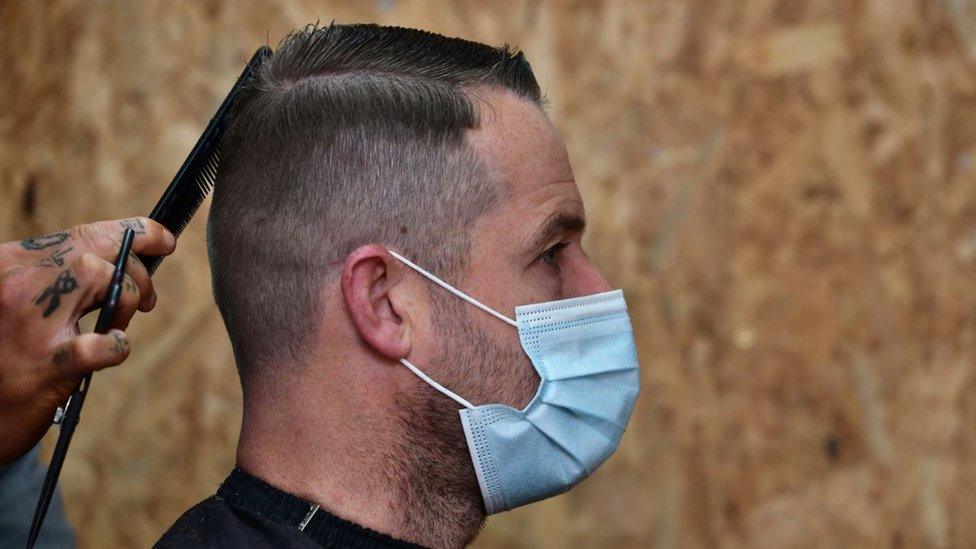
Hair and beauty salons closed on Friday 16 October - it is thought they could reopen with some mitigations
"We were supposed to open on Friday but as yet, there's no planning. There's no way we could open on Friday - regardless of what the executive decides, it's still off the table for us," said Mr Murphy.
"We've been closed now for coming up to four weeks, there's been no grants in our bank account whatsoever."
One of the proposals brought by Mrs Dodds would allow close contact businesses to re-open on a "one in, one out" basis by appointment only.
Hairdresser Lynette Murray already operates on that policy and asked why she was forced to close in the first place.
"I would have assumed there would have been some sort of risk assessment, but everyone was put in the same category," she said.
"I think it's really unfair. We are in the position where we don't have the luxury of getting paid if we don't go to work.
"We have applied for grants but nothing has gone into our bank accounts."
- Published17 June 2021
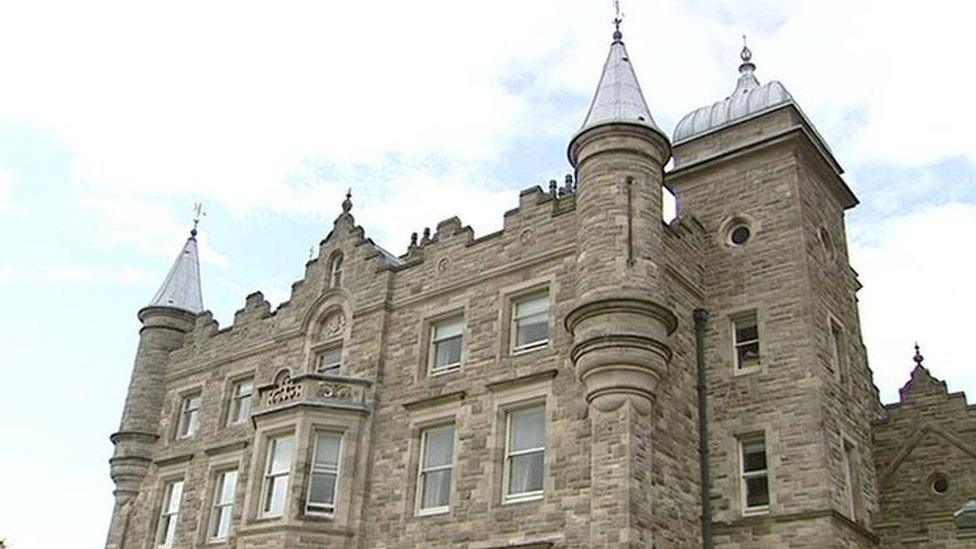
- Published31 October 2020

- Published6 November 2020

- Published3 November 2020
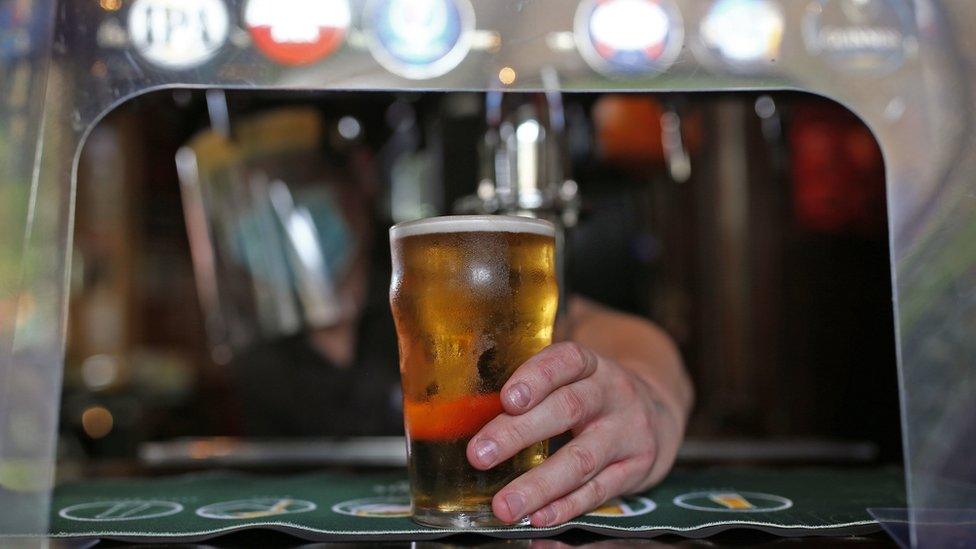
- Published5 November 2020
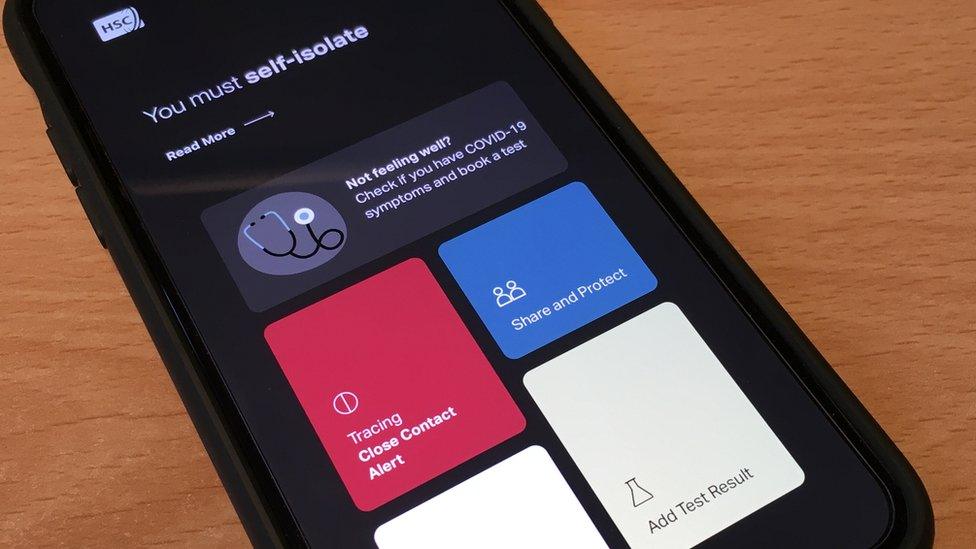
- Published29 July 2021

- Published11 January 2021
